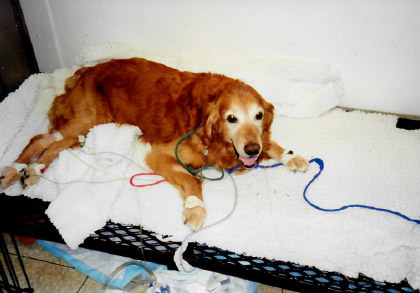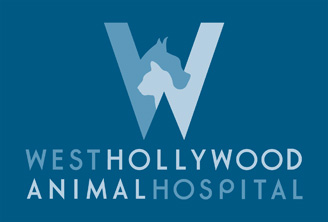 You never forget your first patient. This is the story of mine and how he shaped the rest of my career as a vet.
You never forget your first patient. This is the story of mine and how he shaped the rest of my career as a vet.
The first three years of vet school you sit in lectures, watch others, and learn from the best and brightest vets in the world. But it isn’t until the fourth year that you actually see patients. Of course, you are still a newbie at that point, so you have a resident doctor who oversees you, guides you, and points out your mistakes (hopefully) before you actually make them.
My first “rotation” was an 8 hour shift in the ICU. It wasn’t a particularly busy night, so they only had one patient for me to oversee. Eight hours and one patient. Some of my classmates were jealous that I got such an “easy shift”. Others felt sorry for me because I wouldn’t get enough patients to learn as much as they did. I decided I would make the best of it and do right by my patient and not worry about what everyone else thought. I was given “rounds” which is doctor talk for a Cliff Notes version of this animals story.
It always starts with name, age, sex, and breed: Bozley was a 10 year old, male neutered, Golden Retreiver.
Then what they’re in for: He was diagnosed with stage IV lymphoma (cancer) and is no longer responding to chemotherapy.
And then the plan: Owners plan on euthanizing in the morning. Plan for supportive care until the husband’s plane arrives tomorrow.
Well here it was. My very first patient and my job was to keep him alive until his owners could arrive to let him go.
Harley was a gorgeous boy. He had a shiney ginger coat and a complete gray face. His muscles were sunken in from months of chemo. His body was weak but her spirit was not.
I approached him to start my first official Physcial Exam. Thump. Thump. Thump. He was too weak to stand, but being a typical Golden, the sight of a stranger (me) approaching him gave him such glee his tail began to wag with such vigor, it knocked over his EKG monitor. I went through my whole Physical Checklist. I attempted to examen his ears with an otoscope. He turned his head and licked my face so hard I dropped the scope. I tried to listen to his heart sounds, but he climbed up on my lap as I was squatting and sat on me. I though I could at least check his skin, but when my hand approached, he nuzzled my hand with his nose to indicate my instructions. I was to pet his head. I was to sit on the floor in the corner of the ICU with a Golden Retreiver on my lap and pet his head. After 20 years of schooling, countless hours of studying, tests, reading, learning….the best thing I could do for my first patient, my dying patient, was to care about him. And so that’s what I did.
My shift started at 4pm and ended at midnight. There were hourly treatments; giving medications, checking vital signs, cleaning and nursing care. If they required me to stop petting Bozley’s head, he would nudge me in disapproval. As long as I pet him he rested contently. He was so weak. He had fought a long hard battle and I knew he was ready to go. I read to him about lymphoma treatment protocols (I was supposed to be learning, after all), but I knew he had lived them. I looked at the pictures his owners had decorated his wall with. Bozley as a goofy puppy. Bozley in his prime chasing balls through the vineyards of Northern California. Bozley with his IV in getting chemo. Before I knew it, it was midnight, and the next doctor came in to relieve me.
I gave him rounds, he looked at the treatment sheet, saw the next treatment was due in two hours, and decided to go in the hall to study for the vet board exam until the next treatment was due. I knew if I left, no one would pet Bozley. These were the last 12 hours of his life. I figured the least I could do was give him the next 12 hours of mine. I stayed there with him all night. I couldn’t sleep because if I stopped petting him, I’d get the nudge. I couldn’t cure his cancer. I couldn’t help him regain his strength. All I could do was give him all he asked of me. So I ran my hand through the white hairs of his face, over the boney figure of his skull, and I gave him the best thing I had to offer: my care.
The next morning, his owners arrived. I stayed with him and watched him breathe his last breath. I watched the life leave his eyes. And he was gone. And I wept with his owners. He went peacefully surrounded by people who loved him.
I learned a lot from Bozley that has carried with me throughout my career. I am grateful for all that he taught me. It was nothing I could have learned in a classroom, from a lecture, or prepared for any test. Sometimes the best medicine we have to give is our time.

